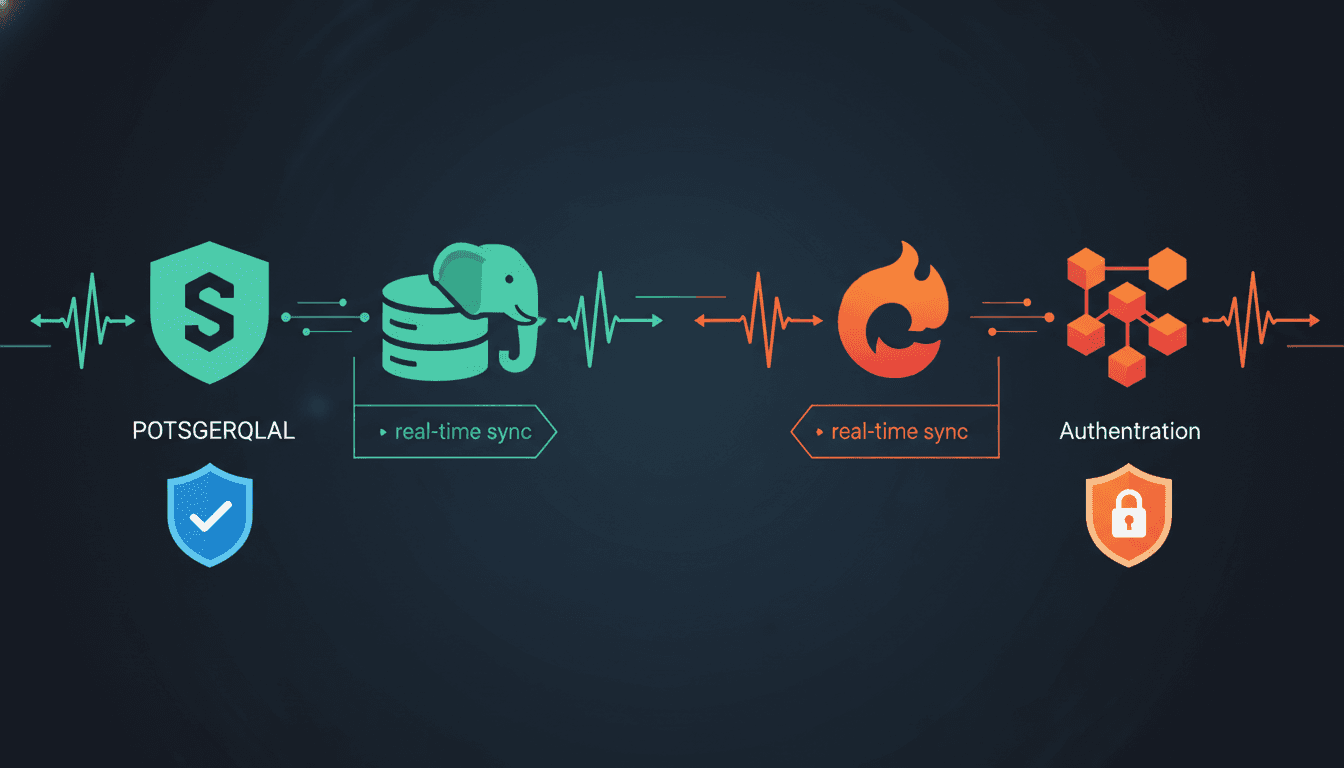Supabase vs Firebase A Comprehensive Comparison
Supabase and Firebase both offer powerful backend solutions, but which is best for your startup? Explore their unique strengths in real-time capabilities, data handling, and developer tools.

Understanding Supabase and Firebase
When it comes to building modern applications, Supabase and Firebase have become go-to solutions for backend development. Both offer Backend-as-a-Service (BaaS) platforms that simplify the process, but they cater to different needs.
Supabase is an open-source platform built around PostgreSQL. It offers robust support for complex queries, real-time data streaming, and advanced database features. It's a great fit for projects that require sophisticated data relationships and the flexibility of SQL. Supabase is known for its auto-generated APIs, real-time capabilities, and straightforward authentication system.
Firebase, on the other hand, provides a document-based storage system. It's optimized for real-time updates and ease of use, making it a favorite among developers who want to quickly prototype and iterate on their ideas. Firebase includes tools like Firestore for document storage, real-time database options, and comprehensive authentication services. Its integration with other Google services also enhances its appeal.
Here's a quick look at their primary features:
- Supabase: Open-source, PostgreSQL-based, real-time data, complex queries.
- Firebase: Document storage, real-time updates, ease of use, Google integration.
In this article, we'll explore their features, pros, and cons, helping you decide which platform aligns best with your project's requirements.
Key Features of Supabase vs Firebase
Supabase is all about offering a developer-friendly experience with its open-source platform. Its auto-generated APIs are a big plus, letting you get started without much hassle. Real-time data streaming is another highlight, ensuring your data is always up-to-date. The simple authentication system makes managing users straightforward. With PostgreSQL as its backbone, Supabase supports complex queries and advanced database features. This makes it a solid choice if your project demands intricate data relationships. For a deeper dive into building secure authentication systems with Supabase and Next.js, check out our guide on Building a Secure Authentication System With Supabase And Next.js.
Firebase shines with its real-time databases, perfect for applications that need instantaneous updates. Its file storage capabilities are robust, making it easy to handle large sets of data. Firebase also offers a comprehensive authentication suite, ensuring your user management is seamless. The serverless functions with Cloud Functions allow for backend operations without the need for dedicated servers. While its NoSQL databases are optimized for performance at scale, they don't support complex querying like SQL does.
Here's how they stack up:
- Supabase: Auto-generated APIs, real-time data, simple authentication, SQL support.
- Firebase: Real-time databases, file storage, authentication, serverless functions.
The developer experience on both platforms is designed to be intuitive. Supabase offers a straightforward setup process with a clean dashboard UI. Firebase, integrated with Google services, provides a familiar environment for those already in the Google ecosystem. Both platforms aim to minimize friction, letting you focus on building great applications. For a detailed comparison of Supabase and Prisma, particularly in their suitability as database solutions for Next.js SaaS applications, refer to our analysis on Supabase vs Prisma.

Pros and Cons of Supabase and Firebase
Supabase and Firebase each bring unique strengths to the table, making them popular choices for backend development. Let's break down their pros and cons to help you decide which fits your needs best.
Supabase:
- Relational Database with SQL Support: Supabase uses PostgreSQL, offering robust support for complex queries and data relationships. It's a solid choice if you need SQL capabilities.
- Real-Time Capabilities: It provides real-time data streaming, ensuring your applications are always up-to-date with minimal latency.
- Open-Source Nature: As an open-source platform, Supabase provides flexibility and control without vendor lock-in, allowing for customization and community-driven improvements.
- Limitations:
- Fewer Integrated Tools: Unlike Firebase, Supabase lacks some built-in services such as hosting and analytics, requiring third-party integrations.
- Serverless Functions: You may need additional services to implement serverless functions, which are not natively supported.
For a detailed comparison of Supabase with another popular backend service, you can explore our article on the best Backend-as-a-Service platforms for Next.js SaaS applications.
Firebase:
- Cost-Effective Pricing: Offers a range of services at a competitive price, especially beneficial for small projects with limited budgets.
- Extensive Authentication Methods: Provides a broad set of authentication options, making user management seamless and secure.
- Comprehensive Toolset: Firebase includes a wide array of tools like hosting, analytics, and performance monitoring, catering to diverse backend needs.
- Limitations:
- Relational Data Support: Firebase's document-based system doesn't handle complex relational queries as efficiently as SQL databases.
- Usage-Based Pricing Model: Costs can escalate with high data usage due to its pricing model based on reads, writes, and deletes.
Both platforms excel in different areas, and your choice will depend on your project's specific requirements and your team's expertise.

Choosing Between Supabase and Firebase
When deciding between Supabase and Firebase, it's crucial to align your choice with your project's specific needs. Supabase is ideal for applications that require relational data handling, leveraging its PostgreSQL backbone for complex queries and real-time capabilities. Its open-source nature ensures flexibility and control, making it a solid choice for developers comfortable with SQL and looking for a predictable cost structure.
Firebase shines in scenarios where rapid prototyping and seamless integration with other Google services are priorities. Its document-based storage and extensive toolset, including hosting and analytics, offer a comprehensive solution for projects that thrive on real-time data updates. However, keep in mind that its usage-based pricing can lead to unpredictable costs as your app scales.
Consider these factors:
- Data Handling: Choose Supabase for relational data and complex querying. Opt for Firebase if document-based storage suits your needs.
- Real-Time Features: Both platforms support real-time updates, but assess the specific capabilities and integrations required.
- Budget: Supabase offers a more predictable pricing model. Firebase's costs may vary based on usage.
- Team Expertise: Evaluate your team's familiarity with SQL or NoSQL databases and the learning curve associated with each platform.
- Long-Term Maintenance: Consider the ease of scaling and maintaining your application over time.
Ultimately, your decision should reflect your project's demands, your team's skills, and your budgetary considerations. To explore how our rapid MVP development services can bring your vision to life with the right BaaS platform, feel free to reach out to us.



